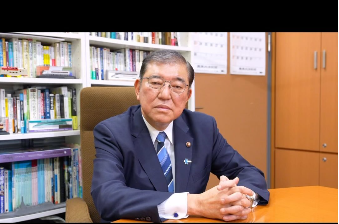
(Photo : Shigeru Ishiba (Iinstagram.com))
- Shigeru Ishiba has been re-elected as Japan's Prime Minister after a runoff vote in the Japanese Diet.
- Despite challenges like rising inflation and a slush fund scandal, Ishiba outperformed Yoshihiko Noda, the leader of the main opposition party.
- Ishiba's leadership will be marked by domestic and international challenges, including working with a strengthened opposition bloc and the prospect of a minority government.
- Ishiba's economic agenda promises continuity with his predecessor's policies, but with a focus on regional revitalization and a more equal Japan-US security alliance.
In a significant political development, Shigeru Ishiba, the leader of Japan's Liberal Democratic Party (LDP), has been re-elected as the country's Prime Minister. The decision came after a runoff vote in the Japanese Diet, the country's parliament, where Ishiba secured the most votes in both houses. The election was held in an extraordinary session convened on Monday, following the LDP and Komeito coalition's loss of its long-held majority in the general election last month.
Ishiba, 67, took over as prime minister from Fumio Kishida, who stepped down in September amid a series of scandals that rattled public trust in the LDP. Ishiba's re-election comes after a challenging period marked by rising inflation, a slush fund scandal, and the ruling bloc's worst performance since 2009. Despite these setbacks, Ishiba managed to outperform Yoshihiko Noda, the leader of the main opposition party, the Constitutional Democratic Party of Japan, in the runoff vote.
The LDP and Komeito coalition secured a total of 215 of the 465 seats in the powerful chamber of Parliament, falling short of the 233 seats needed for the majority. The LDP alone won 191 seats, a significant decrease from the 247 seats it held prior to the election.
Navigating Through Challenges
In contrast, the main opposition Constitutional Democratic Party significantly increased its representation, rising from 98 seats before the election to 148 seats. Ishiba's re-election comes at a time of significant challenges, both domestically and internationally. He will have to navigate hostilities within his party, economic woes, and a period of flux in international relations. His leadership will also be marked by the need to work with a strengthened opposition bloc and the prospect of a minority government.
Despite these challenges, Ishiba remains committed to serving the nation and its people. In a post declaring his win, he stated, I have been appointed the 103rd Prime Minister of Japan. In this difficult domestic and international environment, I will do my best to serve the nation and its people.
Ishiba's economic agenda promises continuity with those of his predecessor, Kishida, but aims to make these policies more effective. He has also envisioned a more equal and mutual Japan-US security alliance, including having Japanese Self-Defense Force bases in the United States, a rare proposal within the conservative LDP.
Revitalizing Japan's Economy and Regions
Ishiba's leadership will also be marked by his commitment to regional revitalization, a response to Japan's population decline. He has also pledged to move some ministries and government agencies out of Tokyo to help revive Japan's moribund regions.
Ishiba's re-election as Prime Minister is reminiscent of his previous tenure as the country's 102nd Prime Minister. He took office in early October and promptly called a snap election, aiming to solidify his position. However, instead of a strengthened mandate, he faced a significant setback as voters, frustrated by rising inflation and a slush fund scandal, handed the ruling bloc its worst performance since 2009.
The re-election of Ishiba as Prime Minister marks a significant moment in Japan's political landscape. Despite the challenges ahead, Ishiba's commitment to serving the nation and its people, coupled with his experience and leadership, provides a beacon of hope for the country's future. His tenure will undoubtedly be marked by significant decisions and actions that will shape the course of Japan's domestic and international affairs.
* This is a contributed article and this content does not necessarily represent the views of btin.co.in









